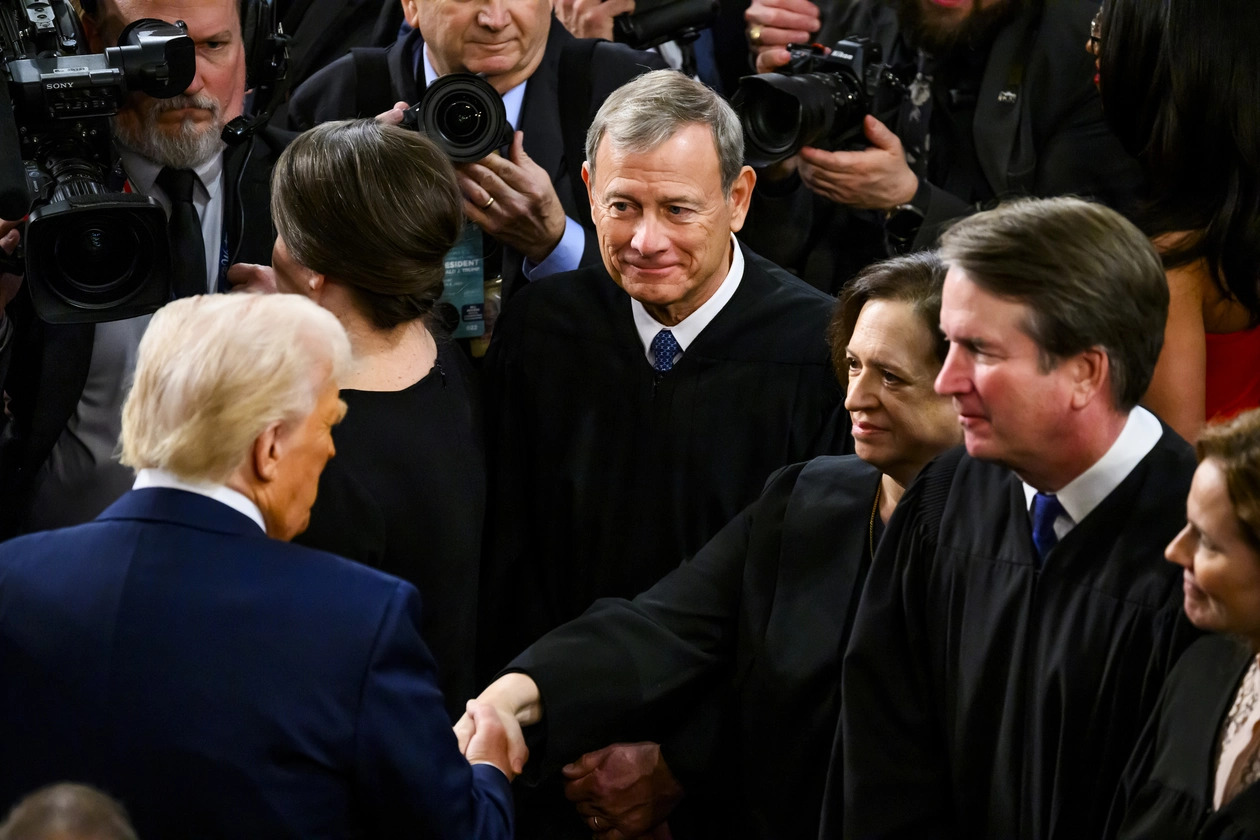Judges may be reluctant to second-guess the president’s claim about what counts as good “cause” for the firing.

President Donald Trump’s quest to expand his power has moved to the marble corridors of the Federal Reserve, an institution once considered politically and legally off-limits.
It will almost inevitably land at another marbled institution: the Supreme Court.
The conservative justices who hold a majority on the court have provided only a few Delphic signals about how they view the president’s authority to fire board members of the Fed. Just three months ago, the justices obliquely suggested that the Fed — unlike other executive branch agencies — should retain some degree of independence from the president.
But Trump is betting the court won’t second-guess his decision on Monday to fire board member Lisa Cook “for cause.” That might be a good bet, legal experts said Tuesday. Judges — including Supreme Court justices — may be reluctant to overturn a president’s subjective conclusion about what counts as an acceptable “cause,” or legal basis, for a firing.
In this case, the purported basis is an unproven allegation that Cook lied on a mortgage application — even though Trump’s true motive likely is his frustration that the Fed has not lowered interest rates.
“The firing of Lisa Cook ‘for cause’ may be pretextual, but is not obviously illegal,” said Harvard Law professor and former Justice Department official Jack Goldsmith, in a recent post on X.
And if the courts take a hands-off approach, any pushback will have to come through other channels, namely political pressure from Congress or feedback from the financial markets.
“Given this judicial hesitancy, the question going forward will be the extent to which politics — and the markets — can serve as a meaningful check,” said Jennifer Nou, a University of Chicago expert in administrative law and the separation of powers.
Political backlash may be a tall order in a GOP-dominated Washington, where Republican lawmakers have leap-frogged each other to show deference to Trump. The economic response to Trump’s move is more unclear, but so far it has been tepid.
In the meantime, a fast-moving legal battle is all but guaranteed. Cook — who said in a statement she is “gathering the accurate information to answer any legitimate questions” about her mortgage history — has vowed to challenge the firing in court and is expected to file her lawsuit imminently. She’s being represented by Abbe Lowell, a veteran white-collar attorney who also represents Hunter Biden and several other officials fired by Trump’s appointees. Lowell also once represented Trump’s daughter Ivanka and son-in-law Jared Kushner.
A vague Supreme Court signal
Key to the legal tea-leaf reading is a two-page, unsigned decision the Supreme Court issued in May allowing the president to fire two members of labor-related federal boards. In that decision, the court’s conservative majority emphasized the Federal Reserve should be viewed differently from other purportedly independent agencies housed within the executive branch.
